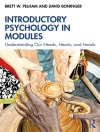The International Ethical Guidelines for Biomedical Research Involving Human Subjects (CIOMS and WHO, 1993: 11) defines "research" as referring to a class of activities designed to develop or contribute to generalizable knowledge. Generalizable knowledge consists of theories, principles or relationships, or the accumulation of information on which they are based, that can be corroborated by accepted scientific techniques of observation and inference. The International Guidelines for the Ethical Review of Epidemiological Studies (CIOMS, 1991) recognizes that it may be difficult to distinguish between research and program evaluation. It offers the following guidance: "The defining attribute of research is that it is designed to produce new, generalizable knowledge, as distinct from knowledge pertaining only to a particular individual or programme" (CIOMS, 1991, Guideline 52, 23). Health research includes both medical and behavioral studies that relate to health. Research can be conducted in conjunction with patient care (clinical research), or it can be conducted outside of the context of clinical care. Research may involve only observation, or it may require, instead or in combination, a physical, chemical, or psychological intervention. Research may generate new records or may rely on already-existing records.
Sana Loue
Textbook of Research Ethics [PDF ebook]
Theory and Practice
Textbook of Research Ethics [PDF ebook]
Theory and Practice
Mua cuốn sách điện tử này và nhận thêm 1 cuốn MIỄN PHÍ!
Ngôn ngữ Anh ● định dạng PDF ● ISBN 9780306468391 ● Nhà xuất bản Springer US ● Được phát hành 2007 ● Có thể tải xuống 3 lần ● Tiền tệ EUR ● TÔI 4631364 ● Sao chép bảo vệ Adobe DRM
Yêu cầu trình đọc ebook có khả năng DRM












